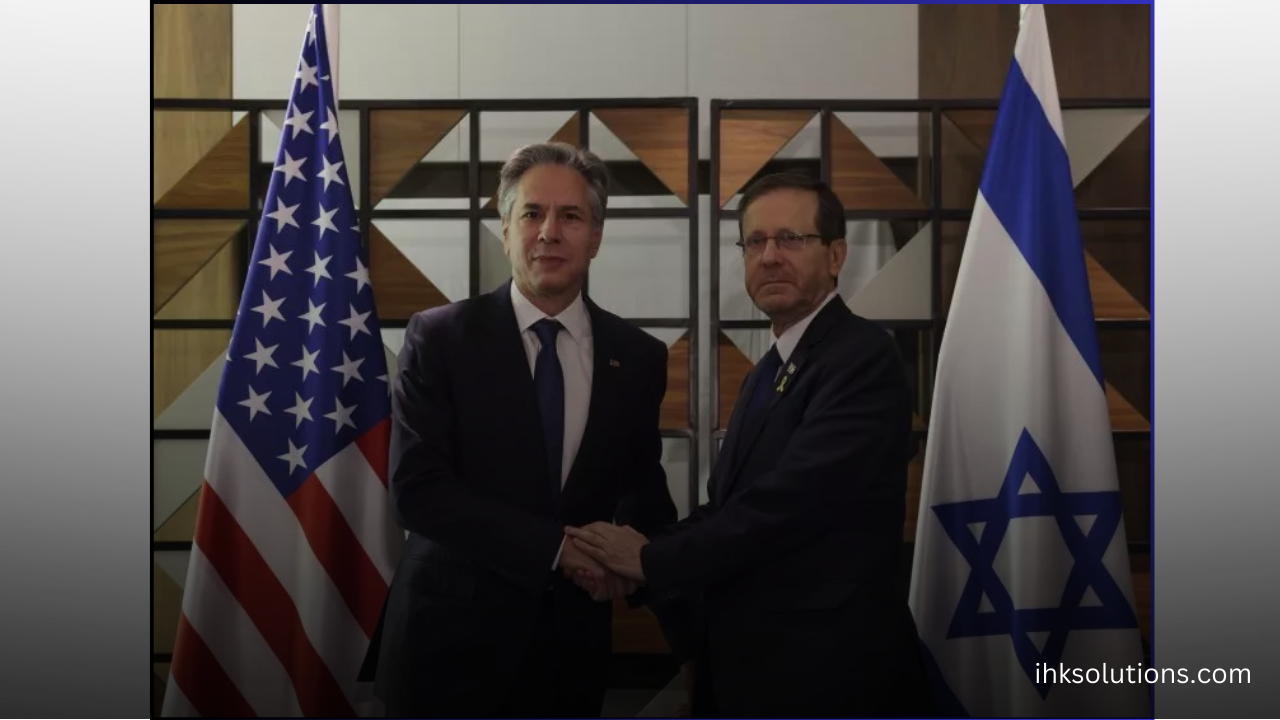Hamas says it accepts the ceasefire agreement proposed by Biden without any ‘new’ Israeli conditions.

Amid the ongoing war between Israel and Hamas, Hamas has agreed to the ceasefire proposal put forward by the United States, but it still opposes what the group claims are Israel has added some “new conditions,” according to a joint statement with Newsweek.
The statement, attributed to senior Hamas official and spokesperson Bassem Naim, detailed the Palestinian Islamic movement’s initial positive reaction to the three-phase plan first outlined by President Joe Biden on May 31. However, Naim claimed that Israel instead sought to double down on its 10-month war effort in Gaza and impose new demands, leading to another potential deadlock in talks that U.S. officials had earlier claimed saw a breakthrough on Monday.
The conflict began with a surprise attack by Hamas on October 7, 2023, which Israeli officials estimate killed around 1,200 people and captured about 240 others, half of whom are believed to still be in captivity. The Gaza Health Ministry estimated that around 40,000 people have died in the densely populated area throughout the ensuing war.
Following what he described as a “very constructive meeting” with Israeli Prime Minister Benjamin Netanyahu on Monday, U.S. Secretary of State Antony Blinken said the prime minister “confirmed” to him that “Israel supports the bridging proposal” put forward by the U.S., Qatar, and Egypt in an attempt to push forward stalled negotiations. Blinken said that the next crucial move is for Hamas to agree.
However, conflicting accounts of the proposal have emerged, with Naim indicating that it was promoted by the White House as “essentially an Israeli proposal.” The plan, as described by Biden, initially included a six-week ceasefire, the withdrawal of Israeli Defense Forces from populated areas in Gaza, the return of displaced Palestinians to their homes, increased humanitarian aid to Gaza, and the exchange of several Israeli hostages and Palestinian prisoners.
The second phase included the exchange of more prisoners, a permanent ceasefire, and the full withdrawal of Israeli Defense Forces from Gaza. Finally, the bodies of the deceased would be exchanged, and a plan to rebuild Gaza would begin.
In his statement, Naim said that Hamas “welcomed” Biden’s announcement on May 31, along with a subsequent United Nations Security Council resolution supporting it on June 11, and that the group “confirmed its readiness for immediate implementation and provided its approval to the mediators’ proposal on July 2.”
However, Naeem accused Netanyahu of deliberately obstructing the process by launching new attacks and seeking additional measures.
In a statement, Naeem said, “What was Netanyahu’s response to all these initiatives and proposals? More massacres and killings (such as the Muwassi massacre, the assassination of Hamas leader Ismail Haniyeh in Tehran, and the massacre at the Tabeen School in the Daraj neighborhood in Gaza),” along with new conditions for negotiations.
According to Naeem, the new conditions include Israel’s refusal to withdraw from the Rafah crossing and the Philadelphi route between Gaza and Egypt, the Nitzarim road established by the Israeli Defense Forces between northern and southern Gaza, conducting more inspections on displaced people crossing the Nitzarim road, modifications to prisoner exchanges, new conditions for humanitarian aid passage, and a lack of commitment to negotiations linking the first and second phases of the proposal.
Naeem also claimed that Israel demanded “a written commitment from the Americans allowing the resumption of hostilities if decided.”
Netanyahu and his administration denied adding new conditions beyond the initial parameters of the U.S. proposal but had previously stated that the war would continue until all hostages were released and Hamas was decisively defeated.
In a joint statement with Newsweek on Friday, as a new round of ceasefire talks began in Doha, Qatar’s capital, Netanyahu’s office said, “Israel appreciates the efforts of the United States and mediators to dissuade Hamas from refusing to agree to a deal for the release of the hostages.”
Israel’s basic stance is well-known to both the mediators and the United States. Israel is hopeful that their efforts will encourage Hamas to agree to the terms by May 27. principles in order to implement the details of the agreement.”
A previous statement issued last week, days before the latest negotiations, confirmed that the message sent by Netanyahu on July 27 “does not introduce additional conditions and certainly does not contradict or undermine the May 27 proposal.” Netanyahu’s office emphasized that “it was Hamas that actually demanded 29 amendments to the May 27 proposal, which the Prime Minister rejected.”
According to the statement from the Prime Minister’s office, the message called for an “agreed-upon mechanism” regarding the Nitzarim crossing and stipulated the “release of all living hostages in the relevant category” in response to a section of the May 27 proposal that stated, “a specific number of hostages will be released ‘alive or dead,'” and specified that Israel “would have the right to veto the release of a certain number of prisoners and could determine the release of at least a certain number of prisoners abroad.”
The message, according to Netanyahu’s office, includes “essential clarifications to help implement the May 27 proposal.”
After the latest negotiations late last week, the Biden administration responded positively on Friday, indicating that a deal could be reached in the coming week. However, Hamas officials expressed skepticism in statements to Newsweek, pointing out that Israel remained insistent on “new conditions” and that the U.S. was misrepresenting the nature of the talks to meet domestic conditions ahead of the November elections and ease regional tensions amid Iran’s imminent threats to retaliate against Israel over “The death of Ismail Haniyeh, the leader of Hamas’ political bureau, in Tehran.”
In a recorded statement released on Monday, Netanyahu described a “good and important meeting” with Blinken and expressed his appreciation for “the efforts of the United States in regional defense against the Iranian axis.”
Netanyahu expressed his gratitude, saying, “I’m thankful for the United States’ understanding of our critical security needs as we work together to free our hostages.” He continued, “I want to stress the importance of our efforts to bring back as many living hostages as possible, starting with the very first phase of the deal.”
As for Naeem, he called on the United States and other countries to proceed immediately with the deal as originally outlined.
Naeem added, “The U.S. administration and the international community must put an end to this recklessness and pressure Netanyahu and his fascist government to stop the aggression and sign the ceasefire agreement.”



